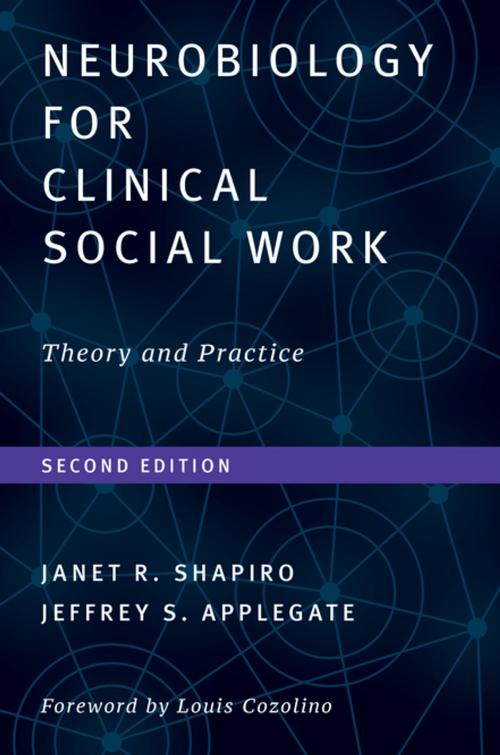Neurobiology For Clinical Social Work, Second Edition: Theory and Practice (Norton Series on Interpersonal Neurobiology)
Nonfiction, Health & Well Being, Psychology, Neuropsychology, Clinical Psychology, Interpersonal Relations| Author: | Janet R. Shapiro, Ph.D., Jeffrey S. Applegate, Ph.D. | ISBN: | 9780393711653 |
| Publisher: | W. W. Norton & Company | Publication: | August 28, 2018 |
| Imprint: | W. W. Norton & Company | Language: | English |
| Author: | Janet R. Shapiro, Ph.D., Jeffrey S. Applegate, Ph.D. |
| ISBN: | 9780393711653 |
| Publisher: | W. W. Norton & Company |
| Publication: | August 28, 2018 |
| Imprint: | W. W. Norton & Company |
| Language: | English |
Demystifying neurobiology and presenting it anew for the social-work audience.
The art and science of relationship are at the core of clinical social work. Research in neurobiology adds a new layer to our understanding of the protective benefits of relationship and specifically, to our understanding of the neurobiology of attachment and early brain development.
This second edition of *Neurobiology for Clinical Social Work *explores the application of recent research in neuroscience to prevention and intervention in multiple systems, settings, and areas such as the neurobiology of stress and the stress response system, the impact of early adversity and toxic stress on brain development, early childhood and adolescent brain development, and the application of this science to prevention and intervention in areas such as child welfare and juvenile justice.
Social workers collaborate with individuals, families, communities, and groups that experience adversity, and at times, traumatic stressors. Research in neuroscience adds to our models of risk and resilience; informing our understanding of the processes by which adversity and trauma impact multiple indicators of wellbeing across time. Social workers can use this knowledge to inform their work and to support the neuroprotective benefit of relationship in the lives of individuals, families, and communities. This text provides essential information for cutting-edge social work practice.
Demystifying neurobiology and presenting it anew for the social-work audience.
The art and science of relationship are at the core of clinical social work. Research in neurobiology adds a new layer to our understanding of the protective benefits of relationship and specifically, to our understanding of the neurobiology of attachment and early brain development.
This second edition of *Neurobiology for Clinical Social Work *explores the application of recent research in neuroscience to prevention and intervention in multiple systems, settings, and areas such as the neurobiology of stress and the stress response system, the impact of early adversity and toxic stress on brain development, early childhood and adolescent brain development, and the application of this science to prevention and intervention in areas such as child welfare and juvenile justice.
Social workers collaborate with individuals, families, communities, and groups that experience adversity, and at times, traumatic stressors. Research in neuroscience adds to our models of risk and resilience; informing our understanding of the processes by which adversity and trauma impact multiple indicators of wellbeing across time. Social workers can use this knowledge to inform their work and to support the neuroprotective benefit of relationship in the lives of individuals, families, and communities. This text provides essential information for cutting-edge social work practice.















